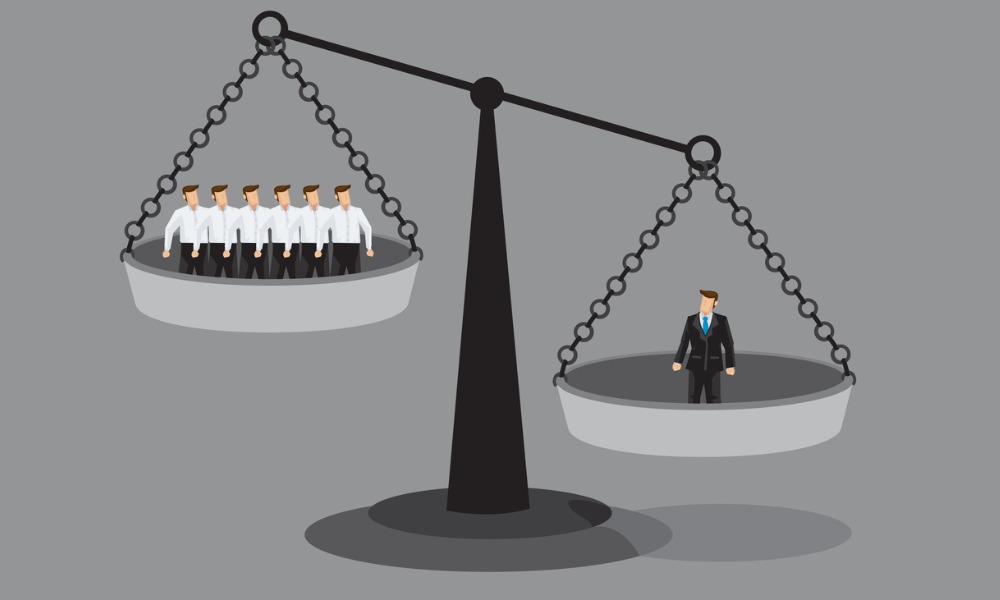Many of top-paid execs also run companies using CEWS program

Canada’s 100 highest-paid CEOs made 202 times more than the average worker made in 2019, according to a new report from the Canadian Centre for Policy Alternatives (CCPA).
This marks only the third time that the gap went over 200, though it’s down from the 227:1 ratio in 2018.
Specifically, the highest-paid 100 CEOs on the S&P/TSX Composite index made, on average, $10.8 million in 2019 compared to $11.8 million in 2018.
At this rate, by 11:17 a.m. on Jan. 4, the average top-paid CEO would have already earned what an average worker would make for the full year. This is about an hour later than they did last year.
CEWS concerns
Also, 36 of the top paid 100 CEOs of 2019 ran companies that applied for and received payroll support in 2020 through the Canada Emergency Wage Subsidy (CEWS), including subsidiaries and franchises.
“The pandemic has not been bad for everyone. At the very top of the income spectrum, Canada’s highest-paid CEOs have been sitting through it atop a golden cushion bolstered by years of out-of-control rates of executive pay,” says David Macdonald, CCPA senior economist and author of the report.
“Even if the companies they run receive government support, their bonuses will continue. Meanwhile, for lower-income workers the hardships of the COVID-19 crisis — mass layoffs in the spring and persistently weak rehiring ever since — will continue to plague them. Clearly, we aren’t really all in this together.”
In November, the federal government gave Bill C-9 royal assent, ensuring that the CEWS program will continue until June 2021.
Early estimates also show that roughly half of top-paid CEOs will likely keep or even increase their compensation levels due to the stock market boom during the pandemic, according to the report.
The report recommends eliminating executive tax benefits such as the capital gains and stock option deductions, introducing new marginal tax rates on extreme incomes and ensuring companies that received COVID-related wage supports like the CEWS do not pay executive bonuses.
“When the data becomes available, it’s a virtual certainty that CEOs will have the federal government paying their payroll at the same time as they receive million-dollar bonuses,” said Macdonald. “There is no shame in the C-suite in this regard, it’s up to policymakers to ensure that this doesn’t happen.”
For 2021, only 19 per cent of employers plan to boost pay greater than an annual cost-of-living adjustment, while 29 per cent are not planning on salary increases, according to a report from Hays. Worse, six per cent plan to reduce salaries this year, according to a survey by Gallagher released in November.




